The massive winter storm that hit Texas and left millions without any power or heating is bringing the topic of how electricity is being regulated in the state to the forefront of the discussion. In short, the energy infrastructure in Texas isn’t made for cold snaps like the one that shook the southern US. And some people believe that capitalism exacerbated the problem, making the situation far, far worse because companies are competing for customers instead of investing in maintaining the infrastructure.
Among the other controversies, the (now former) mayor of Colorado City, Tim Boyd, has announced that he’s resigning because of a scathingly received post online. Boyd essentially left everyone to fend for themselves and stated that they can expect no help from the authorities.
Have a read through what people said about the situation in Texas online and what their opinions about the link between capitalism and the deadly outages are. Upvote the images that you agree with and be sure to share your own opinions with everyone in the comment section below, dear Readers.
#1
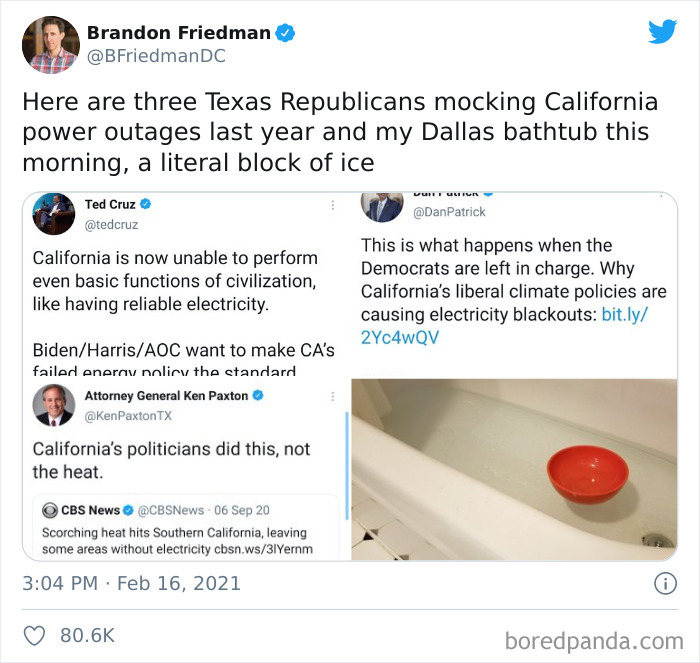
Image credits: BFriedmanDC
#2
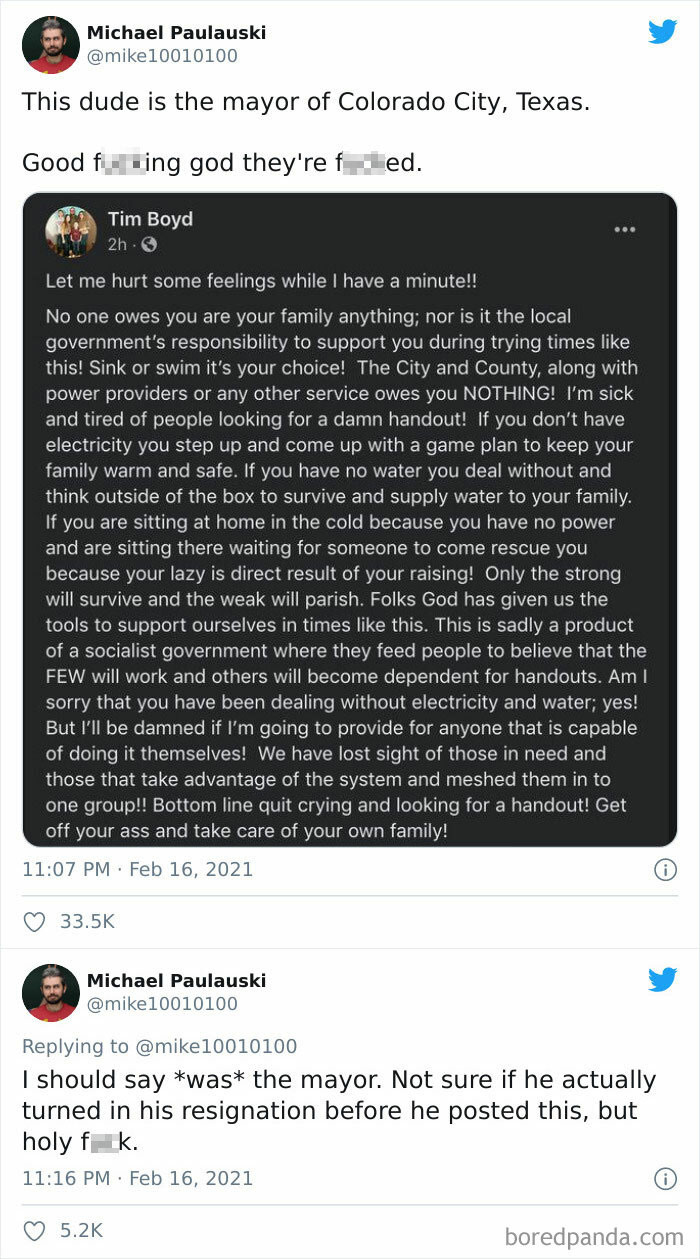
Image credits: mike10010100
#3
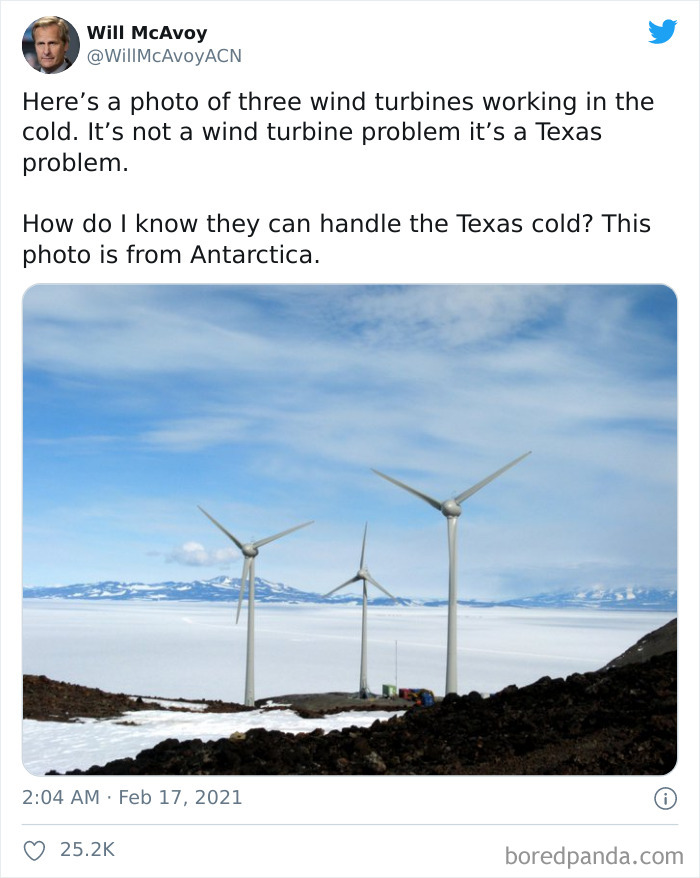
Image credits: WillMcAvoyACN
Texas relies on its own power grid. The Electric Reliability Council of Texas, aka Ercot, manages it. A nonprofit corporation, it's still overseen by the Public Utility Commission of Texas, a state agency. Ercot decided to turn off power for millions of customers after the freezing temperatures shut down several of their power plants. It was either that or risk the collapse of the entire power grid.
Some people, from professors and experts to ordinary Americans and those directly affected by the cold, suggested that electricity deregulation is to blame for Texas’ inability to cope with the winter crisis. Meanwhile, others implied that what some Republicans warned would happen under socialism, in fact, happened under capitalism. In short, people are angry that the federal government isn’t overseeing the entire situation in Texas.
#4
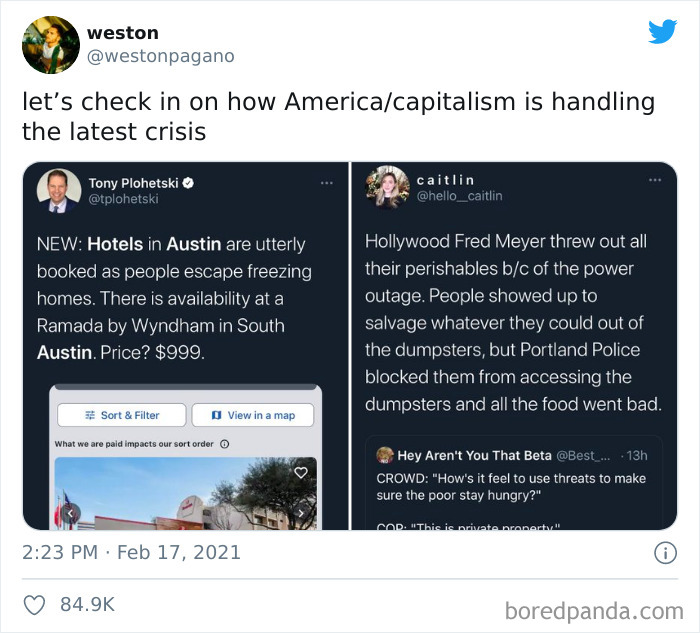
Image credits: westonpagano
#5
All the horrors that they told us would happen under socialism have come true under capitalism. https://t.co/EQsDF57pRT
— PoliteViking 💥🌻🔥🎽☭🏴 (@leigh_fall) February 16, 2021
#6
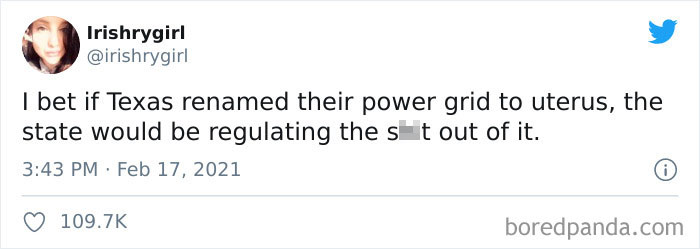
Image credits: irishrygirl
CNN reports that dozens of people across the southern US states have died because of the weather. The number of victims is at least 21. Meanwhile, the BBC writes that over 100 million Americans are under a winter weather warning; over 71 percent of the entire US was covered by snow by Wednesday afternoon.
As of Wednesday, there have been around 2.3 million power outages all over Texas, leaving around a quarter of the state with no access to electricity or heating. The situation is so dire, Texans are bringing in farm and wild animals into their homes to keep them warm while volunteers are rescuing sea turtles by the thousands so they don’t freeze to death.
#7
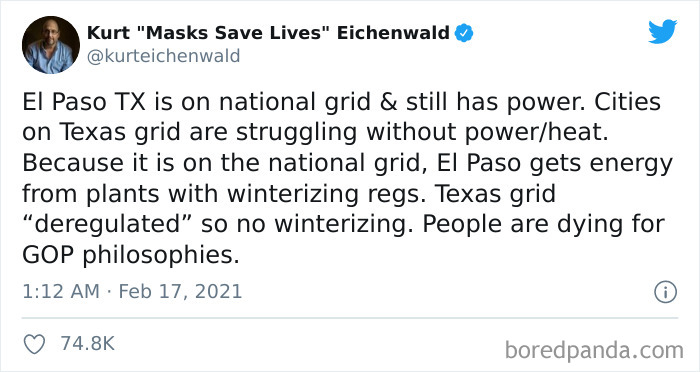
Image credits: kurteichenwald
#8
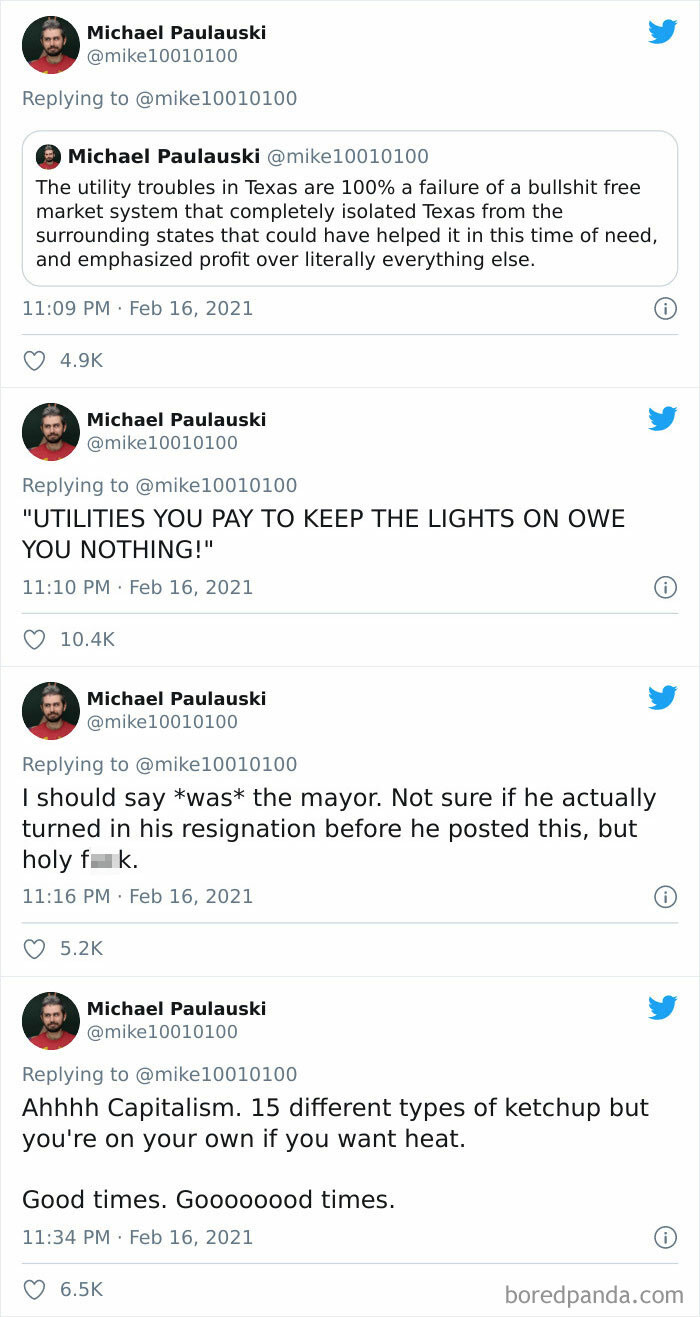
Image credits: mike10010100
#9

Image credits: historianess
The argument, as some experts put it, is simple: even though winter snaps like this one are rare, the power infrastructure in Texas needs to be overhauled, improved, and upgraded to ensure that it functions in times of crisis. What’s more, there are calls for more regulation of the electricity market so that the infrastructure is properly maintained.
As Rebecca Goetz, an associate professor of history at NYU puts it, deregulation might lead to lower prices for the consumers (i.e. us because we’re choosing the suppliers ourselves, thus making everyone compete for our attention by lowering their prices), but it also leads to confusion. Your electricity supplier might not be the company that fixes your grid when something happens to it. Furthermore, maintenance fees aren’t enough to maintain the infrastructure. Or, in other words, you get what you pay for.
#10
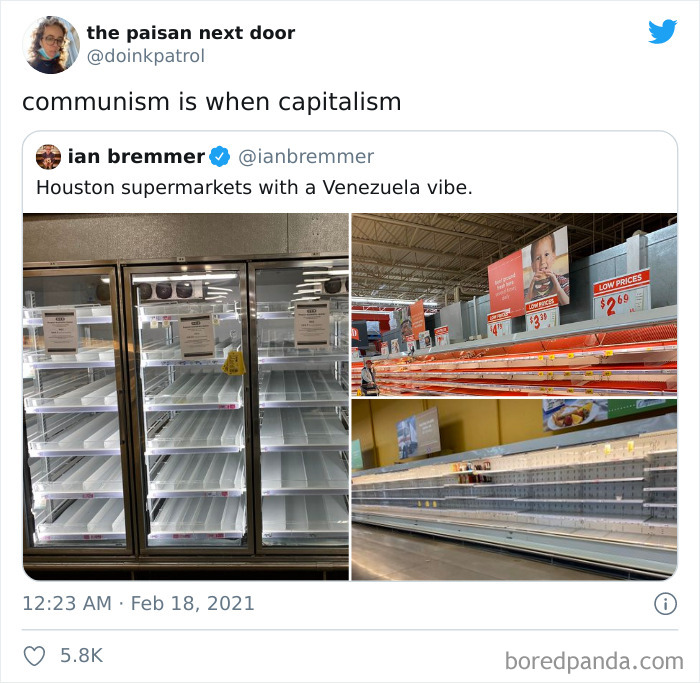
Image credits: doinkpatrol
#11
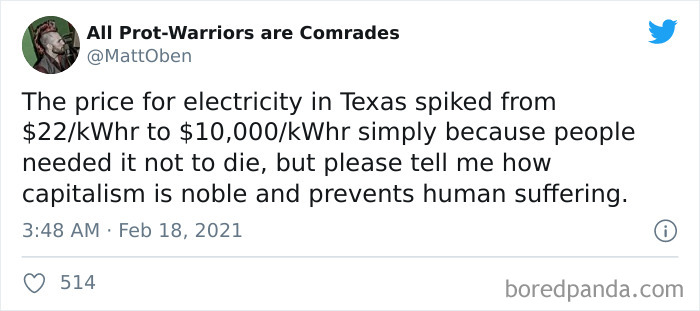
Image credits: MattOben
#12
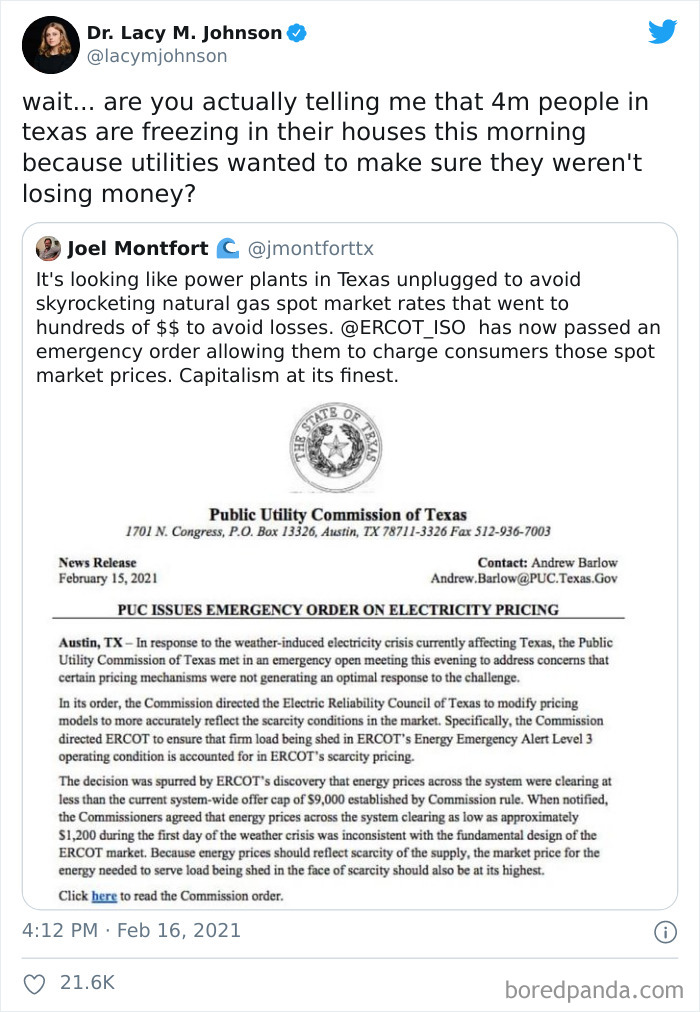
Image credits: lacymjohnson
According to history expert Goetz, Texans prefer cheap electricity to a reliable infrastructure that’s able to efficiently tough out heat spikes, as well as cold snaps. And before you ask, the technology for making tech (including renewable tech like wind turbines, as well as traditional energy sources like natural gas) resistant to the cold does exist. It’s all a question of how much companies want to invest into upgrading the current infrastructure and what the cost of that would be.
#13
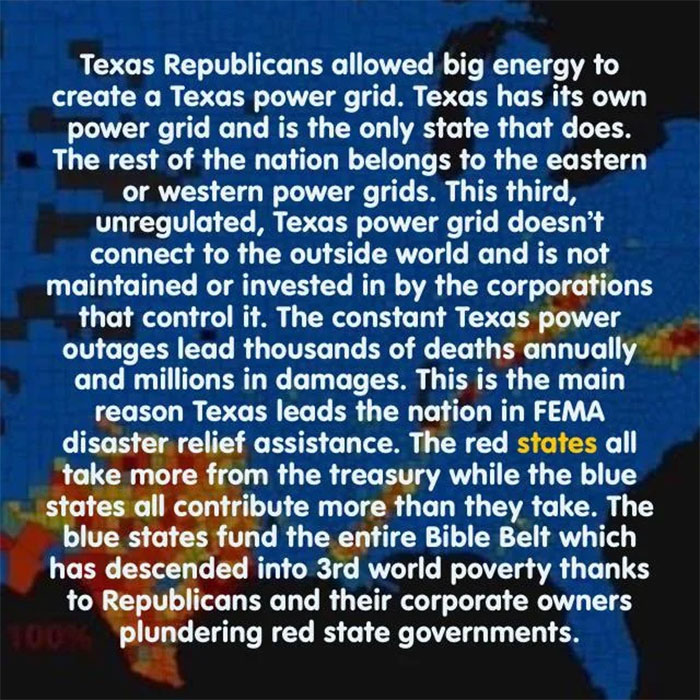
#14
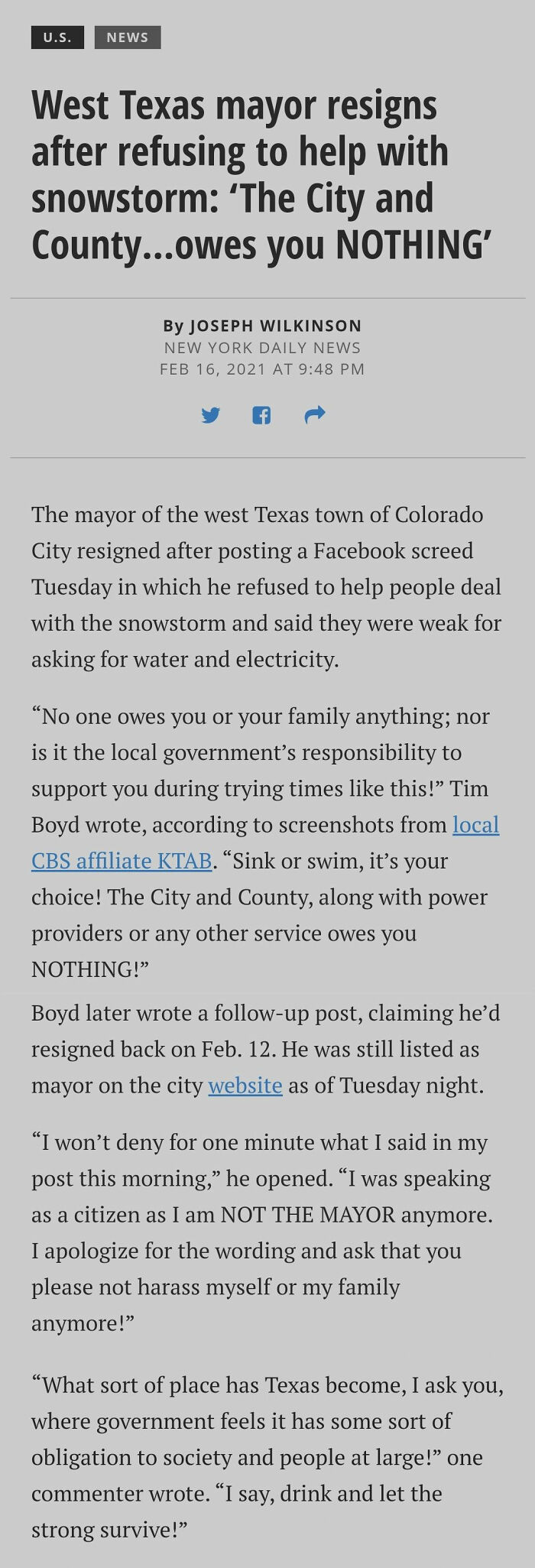
#15

The situation in Texas isn’t black-and-white. Everyone’s looking for someone to blame, but the situation is raising a lot of vital questions that might affect Texas and the rest of the US in the future, not just in the context of winter storms.
Let me play devil’s advocate for a moment here. Spending more money on upgrading the state’s power infrastructure is a good idea because it ensures that people have heating and electricity in times of crisis like during this rare cold snap. However, there are practical considerations to take into account. You might cold-proof your infrastructure, but where do we draw the line? Do we need to ensure it’s protected from every possible and rare eventuality?
#16
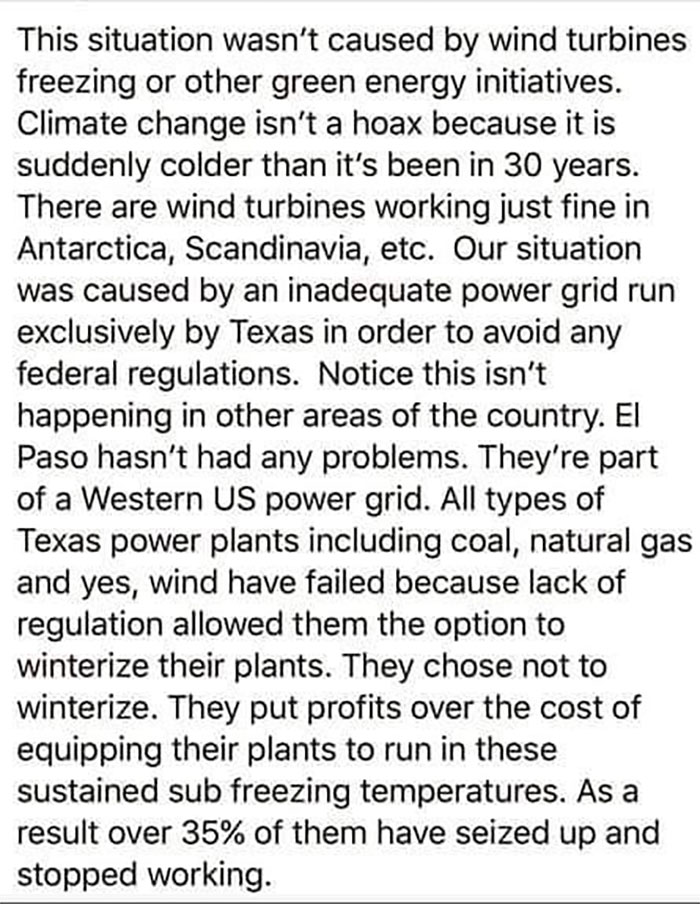
#17
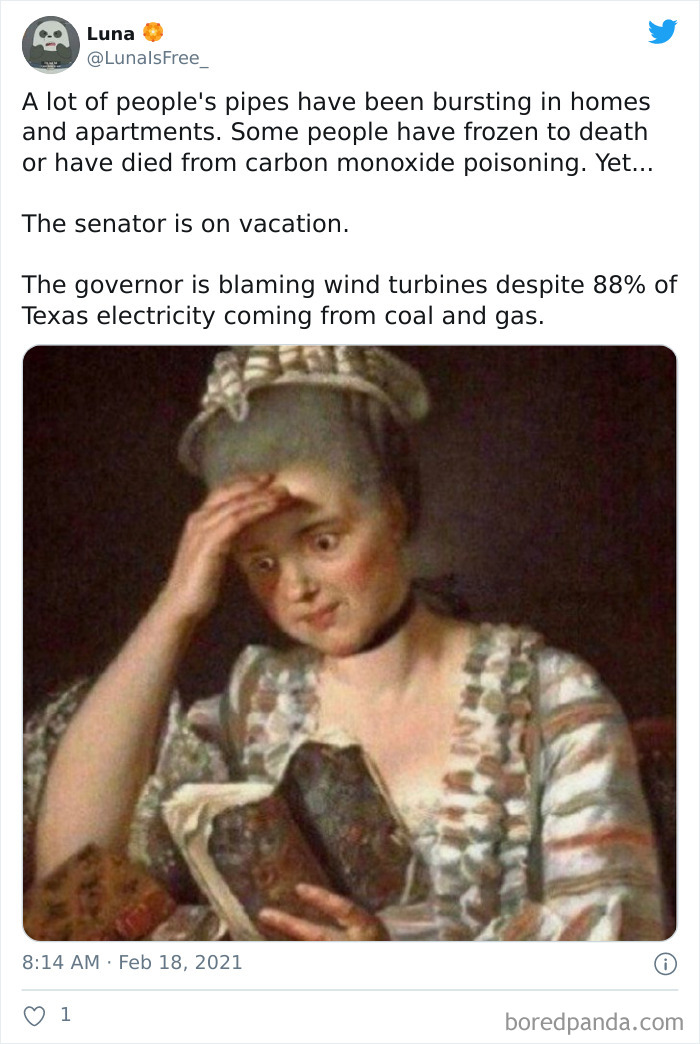
Image credits: LunaIsFree_
#18
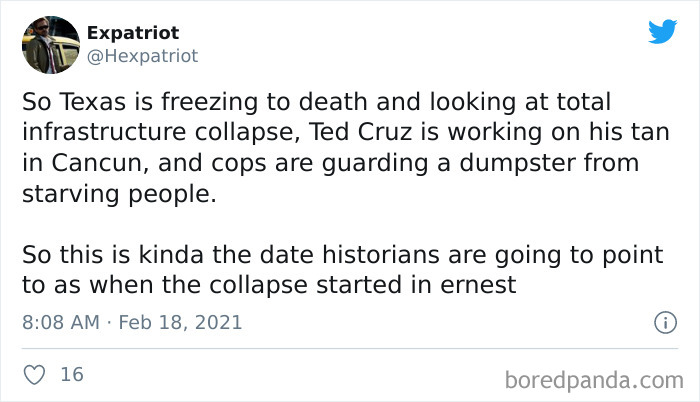
Image credits: Hexpatriot
I’m all for spending more to stay safe and have a reliable system. It’s vital to do. But at some point, ordinary Texans will be asking whether money’s being flushed down the drain by investing in upgrades that might be ‘useless.’ People tend to invest in what they think is likely to happen and that’s a very human thing to do. How much is too much? Where do we draw the line?
Don’t forget that the companies will have to heavily invest in maintaining the new infrastructure. And though that will ensure that some people will have steady work, it would mean that electricity costs would increase for the average citizen. Is everyone prepared to pay more? Some, of course. Especially in the interests of a reliable system. But not everyone. How do you get a consensus when people feel very passionately about their opinions that don't mesh well together?
#19

Image credits: HelaoSouse
#20
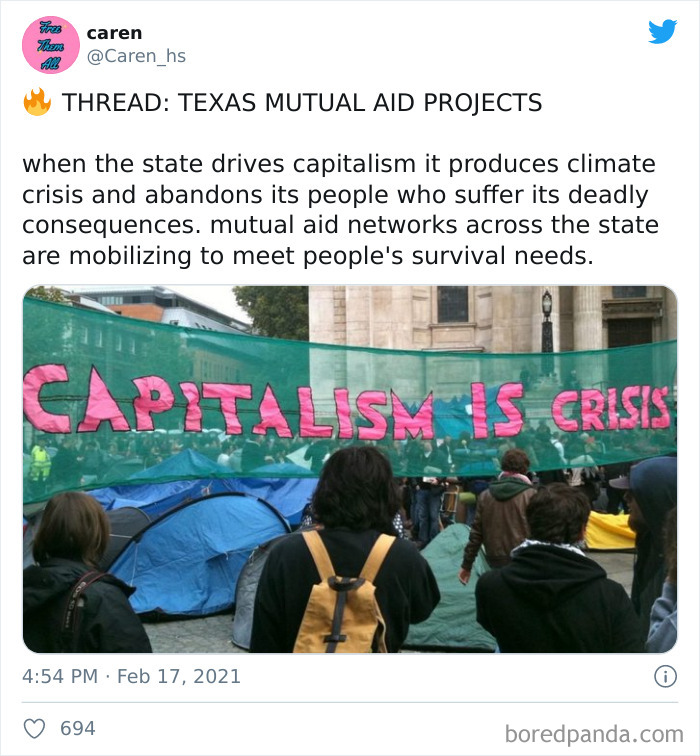
Image credits: Caren_hs
#21
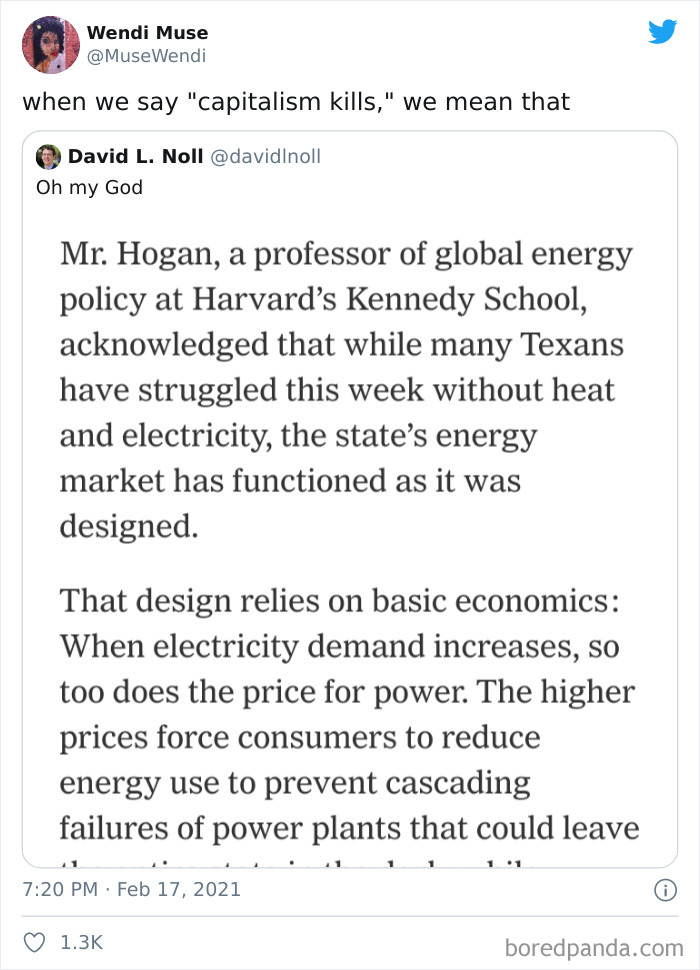
Image credits: MuseWendi
There’s another issue here as well. Greater influence of the federal government could help maintain the infrastructure and ensure that what we’re seeing in Texas right now doesn’t happen again. But here’s the rub: Americans venerate self-reliance and independence. Being overly reliant on the federal government (as opposed to the state government) isn’t something that comes naturally to a lot of Americans, especially Texans who have a long and proud history.
#22

Image credits: JoshuaPotash
#23
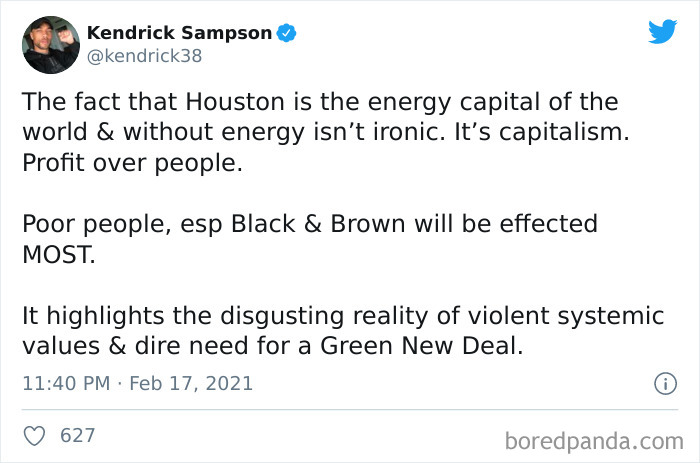
Image credits: kendrick38
#24
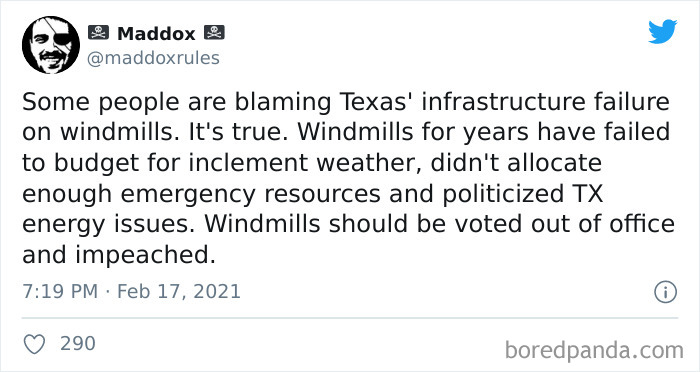
Image credits: maddoxrules
In the short term? Absolutely, Texas needs help from the government: people need quick and decisive action. However, the government isn’t always quick to respond in times of crisis (remember the response to Hurricane Katrina?). What’s more, if you move power away from local governments and communities, you might find (emphasis on might) that the people closest to you and most capable of lending a hand are no longer in the position to do so. Just some food for thought.
#25
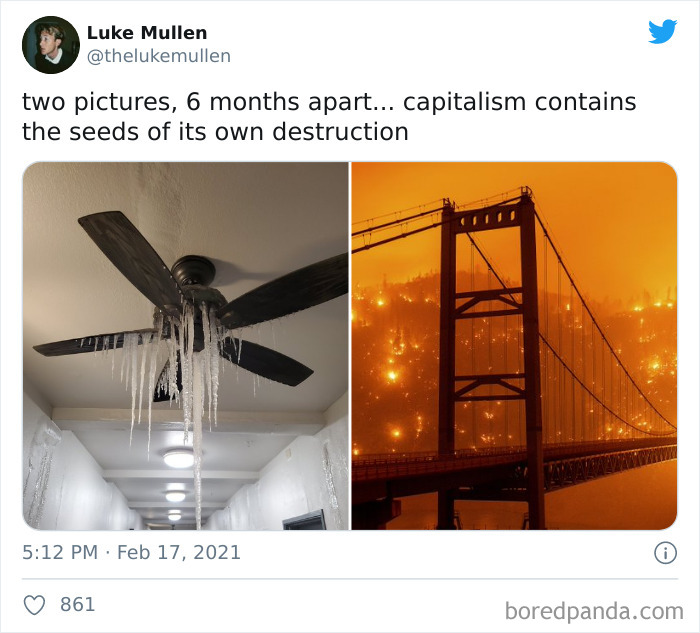
Image credits: thelukemullen
#26
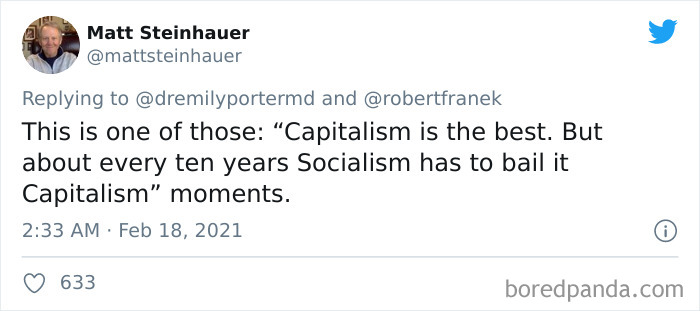
Image credits: mattsteinhauer
#27

Image credits: filth_waste
Do you think that capitalism is to blame for the situation in Texas, dear Readers? If not, do you think that the deregulation of the electricity market made the situation worse? How do you think the system should be reformed? Do you think that relying on the government more is a good idea in the long-term? Share your thoughts in the comment section below. And those of you currently affected by the cold—stay warm, you have our support.
#28
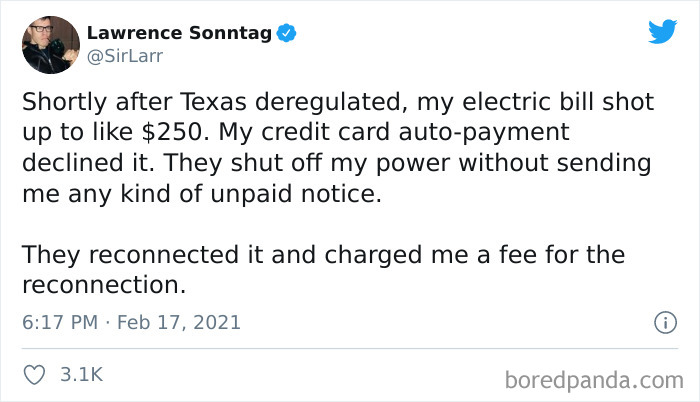
Image credits: SirLarr
#29
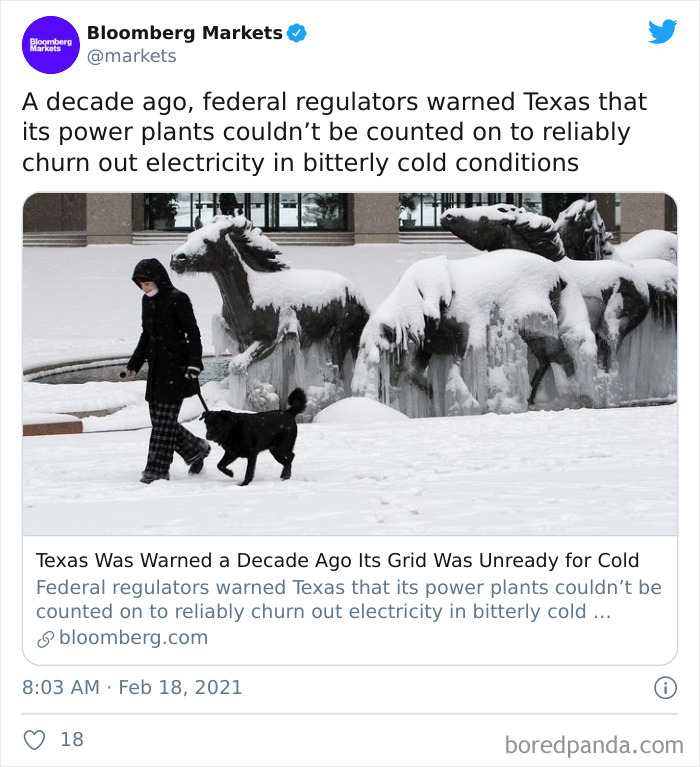
Image credits: markets
#30
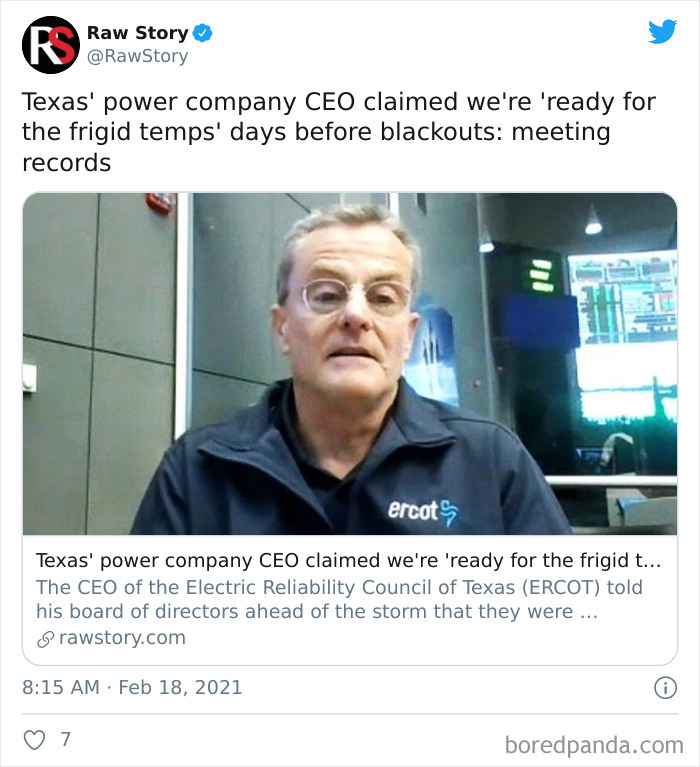
Image credits: RawStory
#31
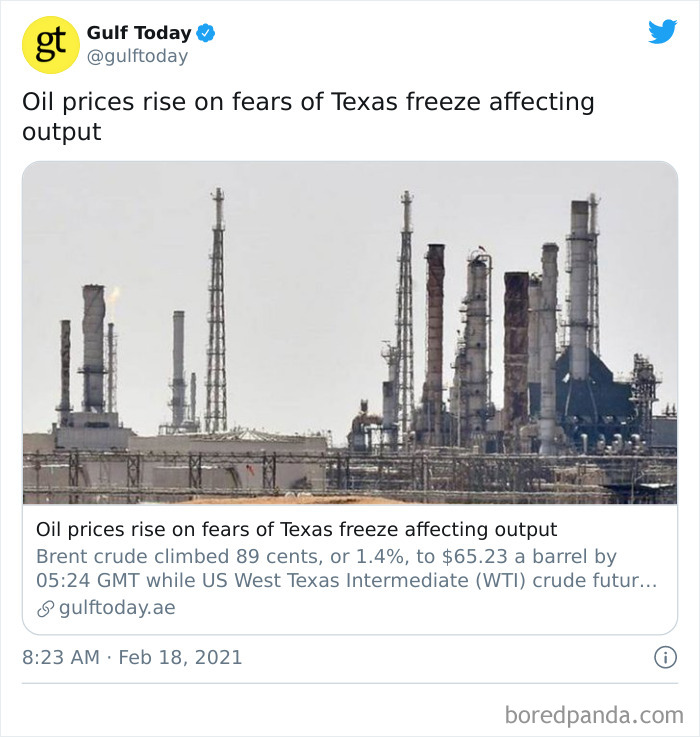
Image credits: gulftoday
#32
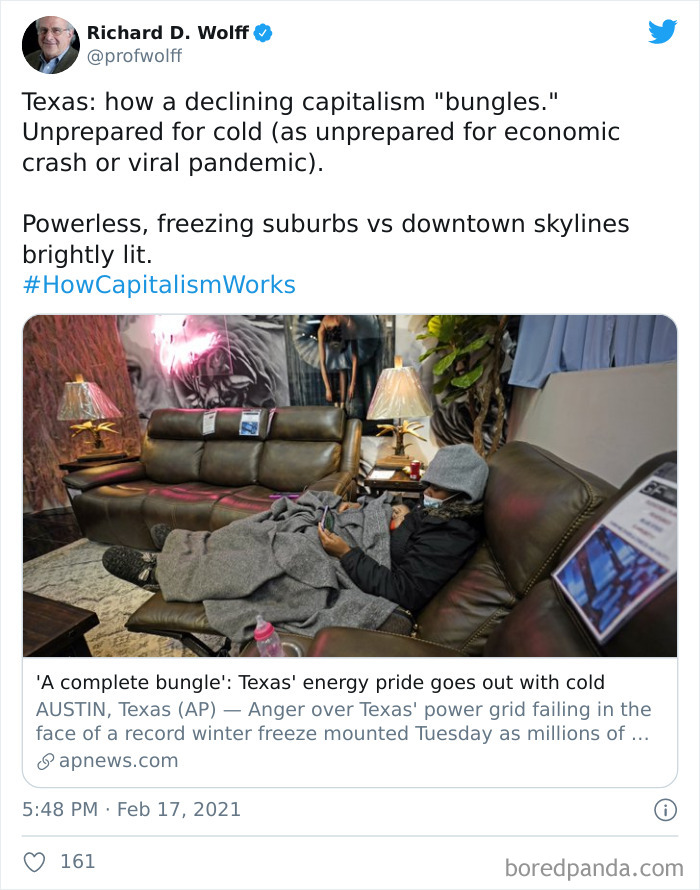
Image credits: profwolff
#33
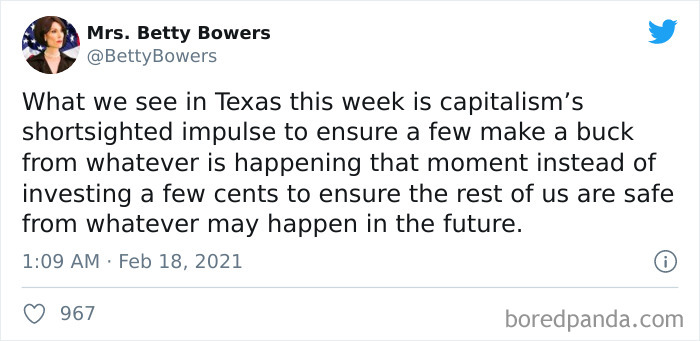
Image credits: BettyBowers
#34
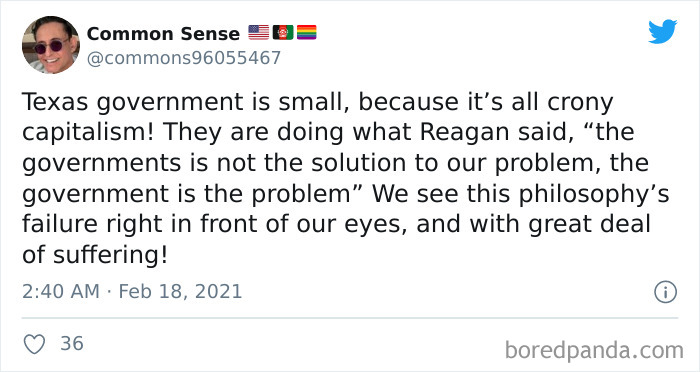
Image credits: commons96055467
from Bored Panda https://bit.ly/2OKMIKN
via Boredpanda